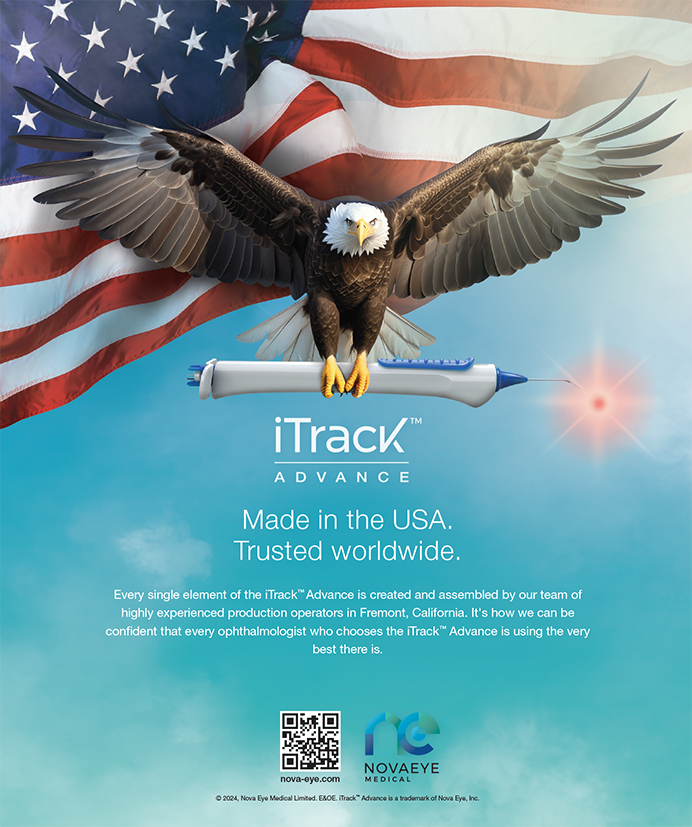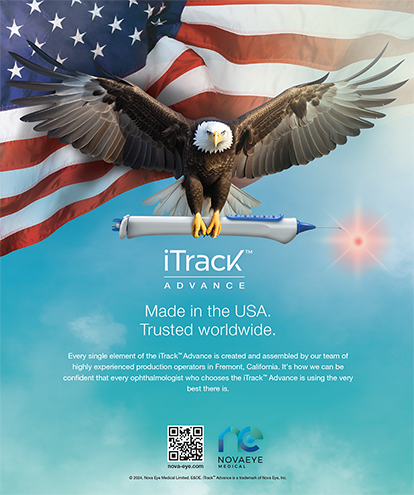Company: Twenty/Twenty Beauty
Clinical Practice: Private practice, Oakland, New Jersey
Claim to Fame: The first ophthalmologist to launch their own makeup line
Dr. Hilal-Campo describes the journey of starting her own beauty company and her passion for eye health.
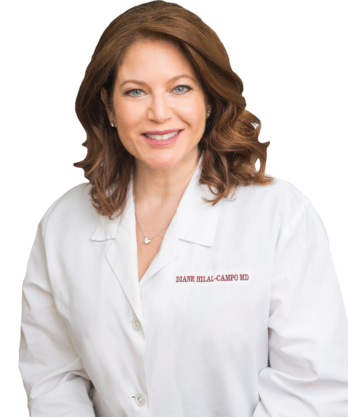
CRST: You have been in private practice in New Jersey for the past 25 years. At what point in your career did you realize that you wanted to start your own company?
Diane M. Hilal-Campo, MD: About 12 years ago, I noticed a dramatic rise in complications and ocular problems among women who wore eye makeup. Between 2005 and 2012, the number of US patients who suffered from dry eye symptoms tripled, and 80% of those were women.1 Women became unable to tolerate their eye makeup because certain ingredients were disrupting the homeostasis of the tear film. I was a chemistry major in college. I wanted to make products that don’t contain allergens, won’t disrupt the tear film, and are not irritating to the eye.
I started to see a lot of women coming into my practice with blepharitis and Demodex. Beauty editors, TikTok, and social media were popularizing practices that were dangerous for eyes—lash extensions, do-it-yourself perms with your eyes open, tightlining, and using lye on your eyes. I wanted to educate women, beauty editors, and other doctors that such beauty techniques are not safe. Women were not caring for their lashes properly, and it was causing staphylococcal marginal ulcers, blepharitis, and other problems. That was my impetus.
I wanted to popularize using hypochlorous acid as a daily hygiene spray to keep lashes clean and make products that had better ingredients. I saw too many women who use powdered eye shadow who had chemicals and pigments on their conjunctivas that were visible at the slit lamp. These harsh ingredients can get under and on top of the contact lenses and scar or tattoo the conjunctiva with pigment. Cream shadows, however, stay put and don’t flake into the eye (Figure 1). That’s how I decided to start my brand, Twenty/Twenty Beauty.
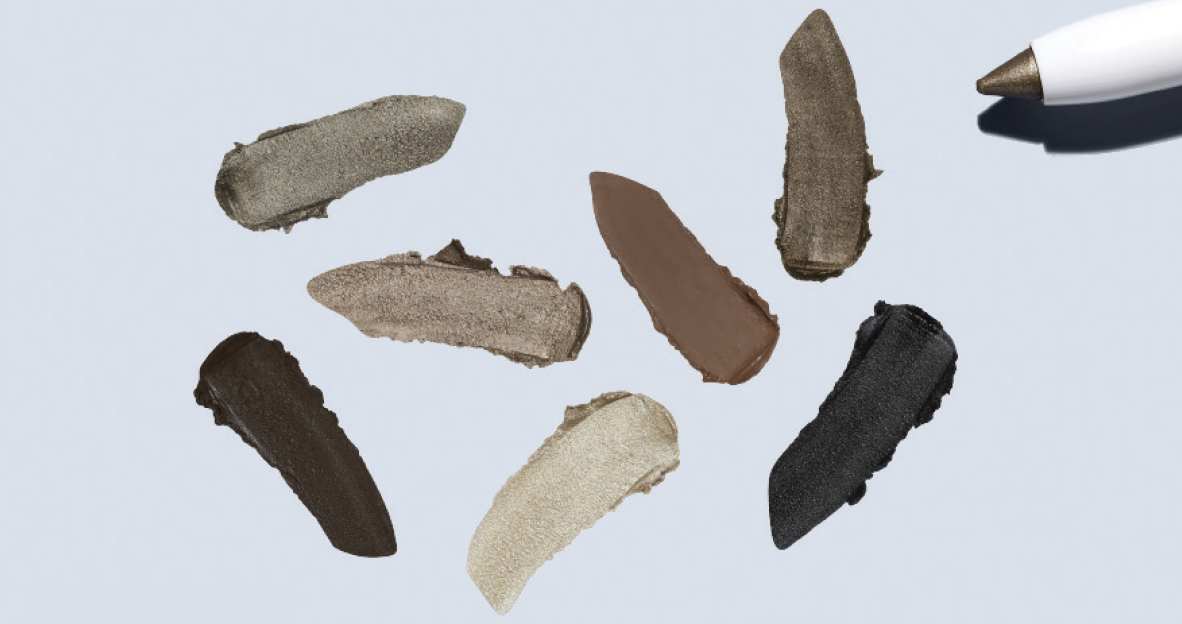
Figure 1. Cream eye shadow from Twenty/Twenty Beauty.
CRST: How long did it take to get the company off the ground?
Dr. Hilal-Campo: I had a false start, as most entrepreneurs do. I tried to launch the company myself. There are a lot of labs in New Jersey, where I live, but none would call me back because I’m not L’Oréal—I’m just a doctor with an indie brand.
Then, I got lucky. I diagnosed and treated a patient who was referred to me by an internist because the patient had been diagnosed incorrectly with bilateral conjunctivitis by three different doctors, when really she had bilateral uveitis. I had to see her two or three times a week for about 6 weeks. She told me she had been in the beauty industry for 20 years, initially working for an indie brand, Space NK, before joining Bobbi Brown. She is now working in new product development for Jones Road, Bobbi Brown’s latest brand.
I said to her, “I have this idea. I see women coming in with all these complications. They can’t tolerate their mascara. They have lots of eye infections.” She said to me, “That’s brilliant. There’s nothing like it on the market. All my friends in the beauty industry have problems with their eye makeup.” She saw I had a busy practice and said to me, “If this is something you want to do, it takes a lot of time. You’re going to need help. Give me your cell number.”
She called me the following week and put me in contact with a team of women with whom she had worked before. They had launched Birchbox and Dr. Dennis Gross Skincare. One of the women is a regulator, one a formulator, one does packaging, and one is a brand expert who has an MBA from the University of Pennsylvania and has been in the beauty business for 20 years. Additionally, now I have a publicist and a ghostwriter. I have all these things that I had no idea I needed.
I told the team the ingredients I did not want in my makeup. I didn’t want harsh preservatives. We in ophthalmology all know what benzalkonium chloride does to the ocular surface. I didn’t want any allergens. I had a blacklist of about 50 ingredients. I also wanted to stay away from potential carcinogens. I have two daughters; I don’t want them or any women using carcinogens or hormone disruptors. I wanted my makeup to be vegan and cruelty free.
The team of women helped me create the products, come up with the name and the colors of my brand. Now, I distribute eye makeup through eye doctors’ offices, which has never been done. Dermatologists have been doing something similar for years with skin products.
CRST: Every entrepreneur comes up against challenges. What were yours?
Dr. Hilal-Campo: The name is trademarked and was supposed to launch in the year of ophthalmology, 2020. The COVID-19 pandemic shut down production. I was crying about the name. I said, “Everybody’s going to equate 2020 with the pandemic. They’re going to think my products have COVID in them.” My team calmed me down and reassured me the name is catchy and appropriate.
CRST: Who were the people who supported your journey in bringing beauty products to the market?
Dr. Hilal-Campo: The independent team of a beauty incubator I mentioned has been my biggest supporter. My friends and family were completely against the idea. One of my daughters has a Master of Finance from Columbia University. She said to me, “Mom, do you realize 99.5% of companies fail?”
My children were adults. I had paid off their schools and my house. I had a chunk of money that I could afford to lose and still be able to retire. Everybody was telling me that I was going to be losing this money and never get it back. I, however, thought of the venture as my passion project. Other people buy a beach house; I wanted to do this. I believed in it.
My eye makeup is the first brand that’s ophthalmologist-formulated. Now, it’s on the market and doing well. It’s brought me places I never thought I would go. People from all over the country thank me. They haven’t been able to tolerate any other mascara, but they can tolerate mine. Other eyelash and brow serums contain prostaglandin analogues. Mine doesn’t, so it’s safe to use and will help grow lashes and brows without the unwanted side effects (Figure 2). The packaging for my hypochlorous acid doesn’t allow air or light in, so it’s shelf stable for 2 years unlike other brands that are good for only a month. All this brings me joy and satisfaction.
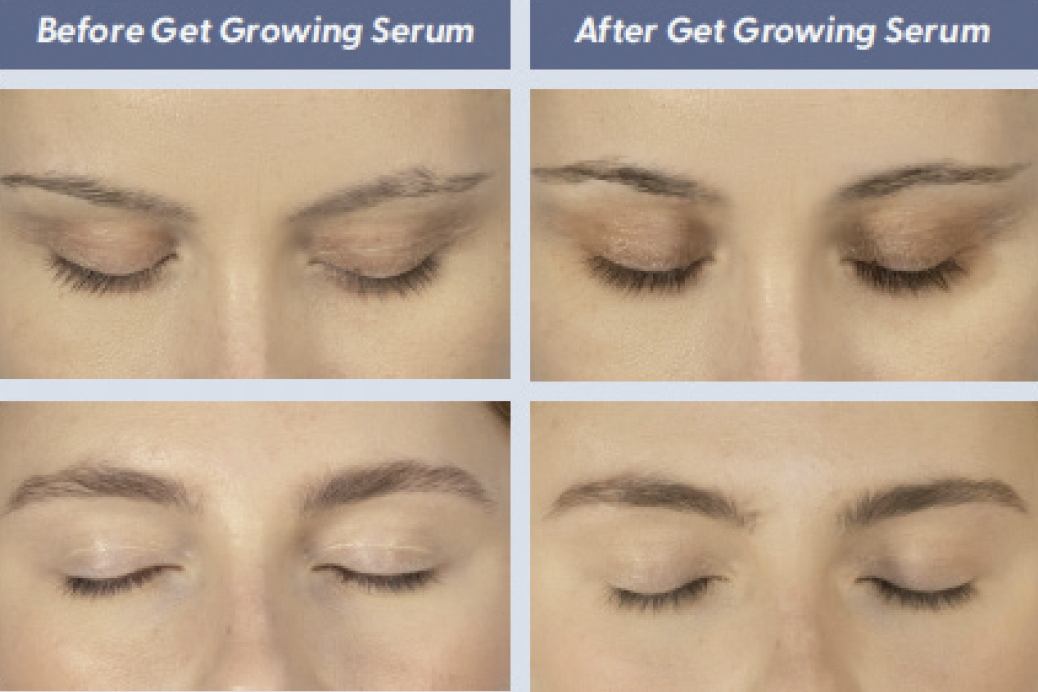
Figure 2. Before and after images demonstrating the effectiveness of Twenty/Twenty Beauty’s eyelash and brow serum.
CRST: Your father, Sadek Hilal, MD, PhD, was a pioneering neuroradiologist at Columbia. What influence did he have on your career decisions?
Dr. Hilal-Campo: My father was Middle Eastern, Catholic, and chauvinistic in some ways, but he believed that it was important that women be educated and that I be educated. He trained women as his fellows, which was unusual at the time. I was a good student, and it didn’t faze him to send me to the best prep schools in the country. He paid for my college and medical school. He supported me every step of the way. I’m grateful for that.
CRST: You were treated for myopia at a young age by Stephen Trokel, MD, a pioneer in excimer laser surgery. Did that shape your desire to pursue ophthalmology?
Dr. Hilal-Campo: My father and Dr. Trokel were friends. They wrote the original pioneering work in Duane’s Ophthalmology describing thyroid eye disease imaging and how the muscles look like a chicken bone.2 Dr. Trokel was my first ophthalmologist and prescribed my first glasses. I could see the outline of the leaves on the trees for the first time and thought, “Oh, how beautiful the world is.” It was such a positive experience. That was the start of my thinking ophthalmology is a great field because you can help people see better.
CRST: You graduated with a bachelor’s degree from Columbia University as part of the college’s first fully coeducational class. Additionally, you are a founding member of a local organization for female ophthalmologists in New Jersey. Would you like to share some thoughts on the importance of diversity and inclusion in ophthalmology?
Dr. Hilal-Campo: We should have representation from every population. That’s the only way we are going to be able to help everybody and move forward.
CRST: If you could go back in time, what would you tell your younger self about the trials and triumphs of starting your own business while managing a busy private practice?
Dr. Hilal-Campo: I would tell her it’s a lot of work and not to hesitate to get help. If you’re going to be an entrepreneur and start something, you need to surround yourself with experienced people so that you can do it well. It will save a lot of trouble if you do that from the beginning. Because I have a busy practice, a year ago, I hired another doctor. I probably should have done that sooner to free me up a little more.
1. Dana R, Bradley JL, Guerin A, et al. Estimated prevalence and incidence of dry eye disease based on coding analysis of a large, all-age United States health care system. Am J Ophthalmol. 2019;202:47-54.
2. Hilal SK, Kreps SM, Trokel SL. Diseases of the orbit: computerized tomography, in Duane TD (ed): Clinical Ophthalmology II: The Orbit. Hagerstown, MD, Harper & Row, 1976, chap 23.



